What IS An Ethical/Reputable Breeder? Puppy Mills - Businesses who breed dogs many times during their lifespan, often in poor conditions, with little to no healthcare or affection. These dogs are bred in large numbers and the business usually breeds many different breeds of dogs. The only concern is profit. Backyard Breeders - People who breed their dog without following through the proper steps to ensure their dog is a good candidate for breeding and will produce offspring that contribute to bettering the breed or making good pets. Backyard breeders rarely do any health testing/genetic screening, won't take puppies back if needed, may breed their dogs excessively or just a single time and may stick to a single breed or a handful of breeds. Often breed to "make back the money they spent on their dog", "earn a little side cash", or because they feel like their dog really needs to have at least one litter of puppies (or that they just really want to see how their dog is as a mom or dad).
Ethical/Reputable Breeder Checklist Note that individual breeders vary and this is a general checklist. If the breeder you're looking into has more than a few exceptions from the following list however, we would recommend finding another breeder who will likely provide you with better puppies and more long term support.
How to Find an Ethical/Reputable Breeder
Once you have a potential breeder's info, get as much information about them online or from your source as possible. How much of it matches up with your list? If they fit most of the list, the next step is to contact them! Many breeders are somewhat busy and don't always respond right away. Give them a couple of business days and try again. If that doesn't work, switch to another method of communication. Maybe they're more responsive via Facebook messenger than email. For the record, I've NEVER had a pet professional get back to me when I've tried to contact them via an email form on their website. I wouldn't start there.
Conclusion It takes a little time and effort, but learning what to look for to find a good breeder can be so rewarding if you can manage to take home an amazing puppy from their incredible breeding program. These dogs are usually a joy to live and work with. A good breeder and breeding program can make all the difference. If you have any questions or if this seems overwhelming, please contact us and we'd be happy to help you get started with finding some options. Additional Resources Facebook Post
Copied from another breeder: POTENTIAL OWNER: How much is the puppy? BREEDER: $3,500 POTENTIAL OWNER: What?? It's way too expensive!! BREEDER: What do you think would be a good price? POTENTIAL OWNER: No more than $500. You breeders are so over priced. BREEDER: I am sorry you see it this way, why don't you try it yourself? POTENTIAL OWNER: But I've never done it! BREEDER: For FREE I can teach you how to do it, and in addition you will have the knowledge to do it again. POTENTIAL OWNER: Perfect, thank you! BREEDER: To start you will need a female(average cost $3000 and up). Also a male(average cost $3000 and up) or semen (average $1000 and up). You will need to show them to their championship to show they meet the breed standard(Minimal $2000 with travel & fees). You will need to do genetic & health testing on them, averages about $750 per dog. Raise and provide daily care, feeding & grooming for 2 years. (So minimal $150 per month) POTENTIAL OWNER: But I don't have that much money... BREEDER: For $500 you can raise a liter and then keep one of the puppies. Obviously, you will pay the cost of whelping & care. POTENTIAL OWNER: I can do that. BREEDER: OK so I have a female due to whelp in 2 weeks. You will need to be available 24/7 around the clock for at least 8 weeks to help with delivery and care. POTENTIAL OWNER: Eight weeks?? it's way too much time for me! I have to work. BREEDER: You will also need the reproductive vet to do xrays($200-$500), possibly progesterone testing($75-$250) & C-section($1000-$5000) and initial vet care on pups until old enough to be placed. Have on hand a scale, thermometer, latex gloves, sanitizer, absorbent tissues, scissors, hemostats, heating pad, whelping box, blankets, cleaning supplies, appropriate food with supplements for mothers, formula, medications & hand feeding supplies in case of emergency.... POTENTIAL OWNER: But I don't have all these things! BREEDER: For $1000 you can buy them. POTENTIAL OWNER: Ummm .... You know, I think it might be better if I just buy a puppy. BREEDER: Wise decision. For us breeders there are no vacations or holidays, while you go to visit with family & friends we are home at our dogs side caring for them. It is a no breaks commitment. THIS IS THE REALITY When you choose a professional you don't only pay for the puppy but also: Tools, knowledge, experience, love, time, sacrifices, etc.
1 Comment
Intro - You may skip to the next section if you just want to get to it. :) When I was younger - long before I had joined the dog training world - my sister and I wanted a dog. My dad didn't. We knew he was going to be a hard sell. But between my sister's cuteness and my "breed research" and charts detailing which dog would be best, how to train it and addressing all of my dad's primary concerns, we got a dog.
Somehow, we managed to talk our way into trying a second dog. This time, I really researched. My dad insisted on a small dog. I wanted a dog that was easier to train and would be able to go on walks and runs (my sister was very active). I found the rat terrier and it sounded like the perfect fit. It checked all of the boxes and was easier as a first time pet than many other terriers. Owner reviews were great.
Fast forward about 10 years and I was now well into my training career. I had worked with hundreds of dogs and many, many different breeds. One breed that stood out to me as one I wouldn't want to have based on my experience with dozens of members of that breed was the miniature schnauzer. They seem like sweethearts and I totally get the people who enjoy them as pets, but many of the ones I had worked with were very anxious, barky (oh that schnauzer bark), and they weren't very social with people or animals. One day, a client brought two mini schnauzers to my agility class. I immediately started thinking of modifications we could do to make things as easy as possible since these dogs probably wouldn't be very confident and I put them near a door so they could step into the hallway if the dogs started barking and needed a moment to settle. To my great surprise, these were the two best dogs in that class. They were confident, calm, ready to try anything we asked, ignored the other dogs (even the dogs who were struggling), and never barked once. I was shocked. I had never seen mini schnauzers behave like that - and these were young as well (I think one was a year and the other was a year and a half at that time). I asked their owner where she had gotten them from and she told me about this amazing breeder who did health testing, titled her dogs, selected for temperament, then had an entire socialization program she started with the puppies and had the new owners finish with their puppies at home. I knew about ethical breeders who did these things, but I didn't know until this moment, what a massive difference in behavior a good breeding program can make. Check out my blog post on How to Find a Good Breeder for more info. Breed Matters, BUT There's More You Need to Know Pure Bred vs Well Bred IF you have a reliable breeding program, temperament, health and structure will still show up as a bell curve. You're still going to have outliers in an established breeding program with championship lines. Some breeders have found ways to increase reliable results in one area, but that often increases flux in other areas. In lines that aren't well established, like backyard breeders and puppy mills (which btw is where all those pet store puppies come from), you may have a pure bred dog, but it's very unlikely to be a well bred dog. There's usually little, if any thought placed on temperament, health or structure, which leads to higher rates of behavior problems, health issues and structural issues like luxating patellas, arthritis or hip dysplasia. Backyard/puppy mill breeders also don't typically raise their puppies inside the home or have a solid socialization program to give the puppies and their owners the best possible start in life. See our blog post on socialization to learn what it is and why it's so important for a confident, well-adjusted adult dog. They also often use cheap vaccines/dewormers that haven't been stored properly, making them ineffective. Odds are good that if your breeder didn't take their puppies to the vet for treatments, you'll have to start all over when they come home with you. Working vs Pet lines Another consideration is what kind of lines are the breeder using? Are they focusing on dogs who are being bred to work? Or are they breeding lines that are a little more toned down to be better pets? There's a big different in temperament and energy levels of working line labradors (called field labs) and breeders who breed them specifically as pets. You can find amazing, ethical breeders for both types, but you want to make sure your breeder is breeding the type of lines that will fit your lifestyle best. Join breed specific groups and talk to reputable, ethical breeders if you have questions about what would be the best fit for you. It may turn out that another breed entirely would be a better fit. Mixed Breeds and Designer Dogs
Socialization Matters a LOT!!!!!
For the record, I've seen some dogs from amazing lines really struggle because they didn't get good socialization during their socialization window. I've also seen plenty of mixed breed and backyard bred dogs who are pretty rock solid behaviorally because they had amazing socialization experiences. It counts for a lot. Genetics, training, health, enrichment and environment make up the rest. If This Seems Overwhelming... Narrow down your breed options and contact a few breeders for that breed. Again, check out the blog on how to find a good breeder. Ask questions. A good breeder will expect you to vet them as much as they vet you. If they aren't a good fit, they should be able to recommend a breeder or another resource who is. Contact a trainer (hi). Many trainers are more than happy to help you find a good fit. We'd love to see you have a positive relationship with your dog and start off on the right note.
|
Kat & Haylee
Just a couple of animal geeks trying to make the world a better place. Archives
February 2023
Categories
All
|
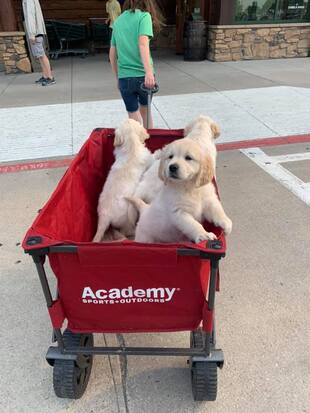


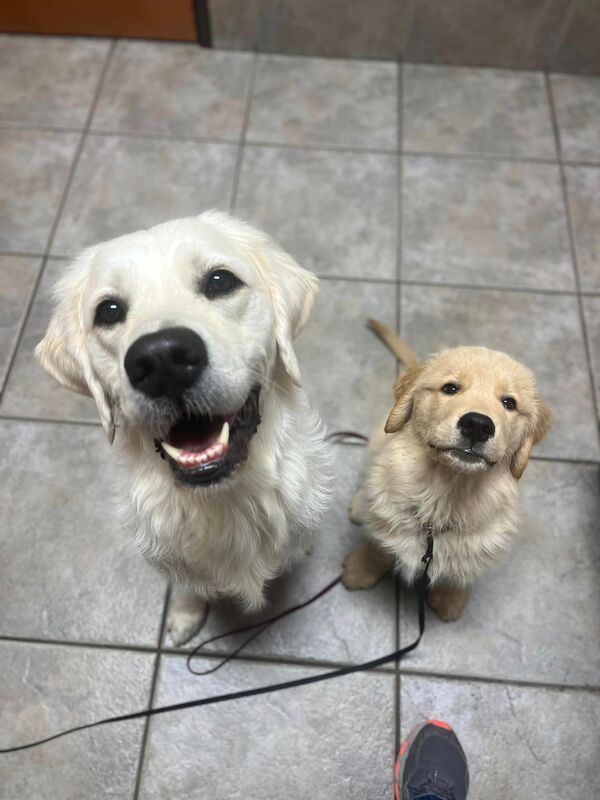
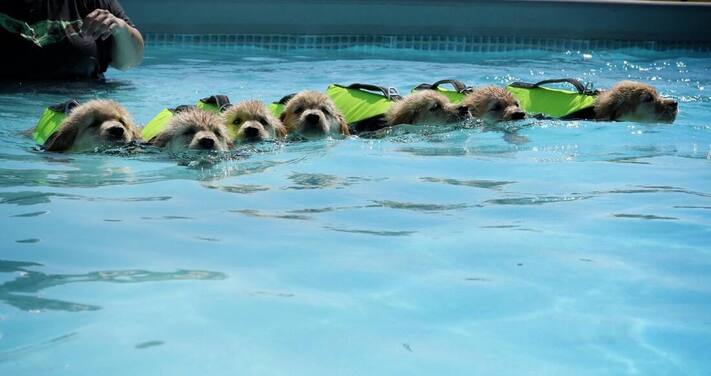
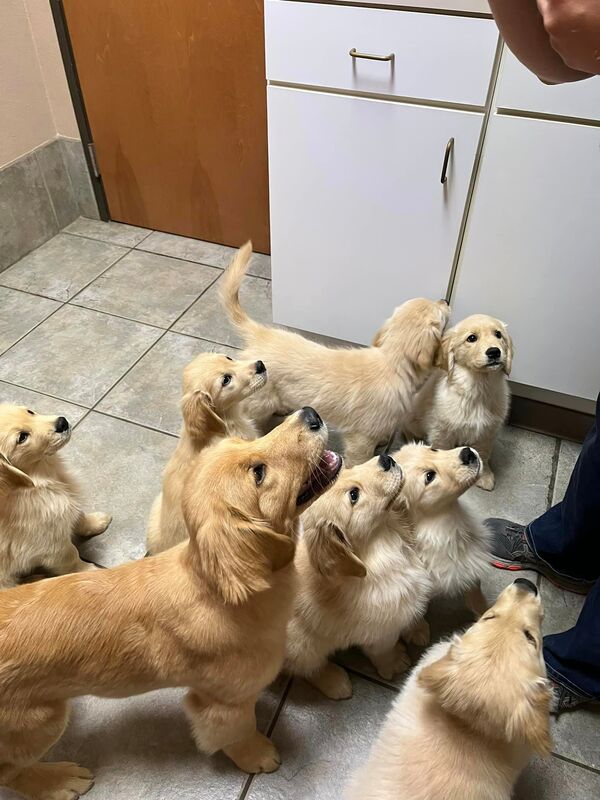
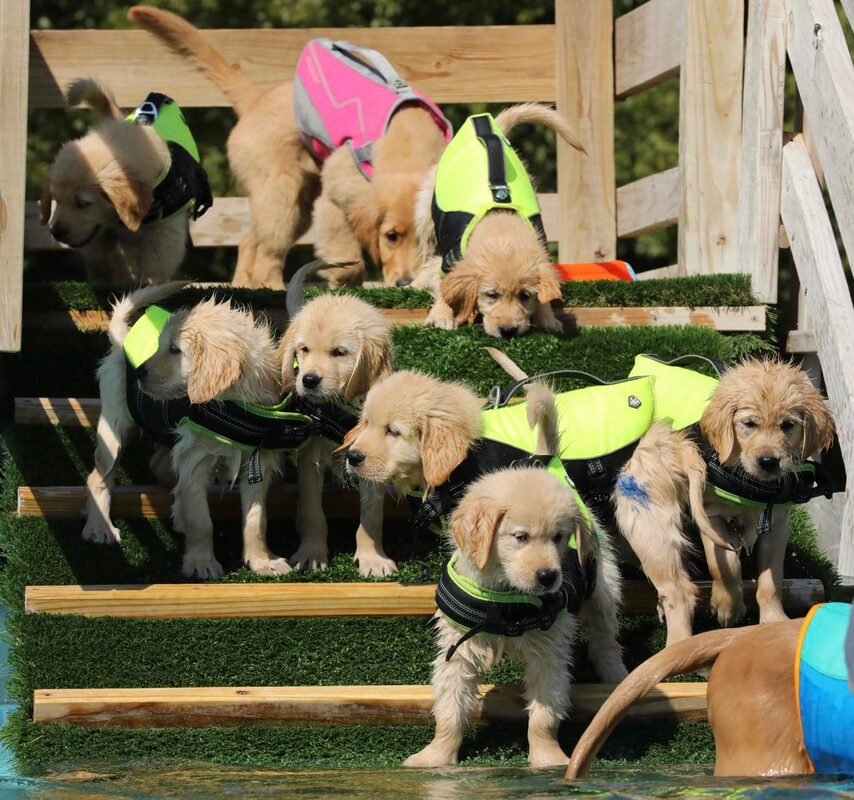


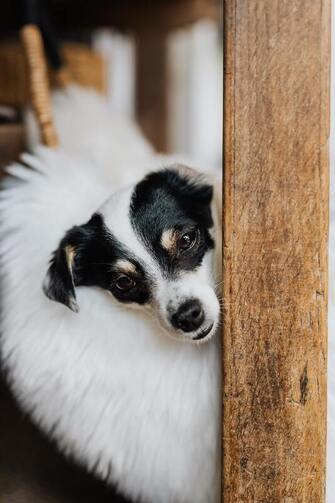


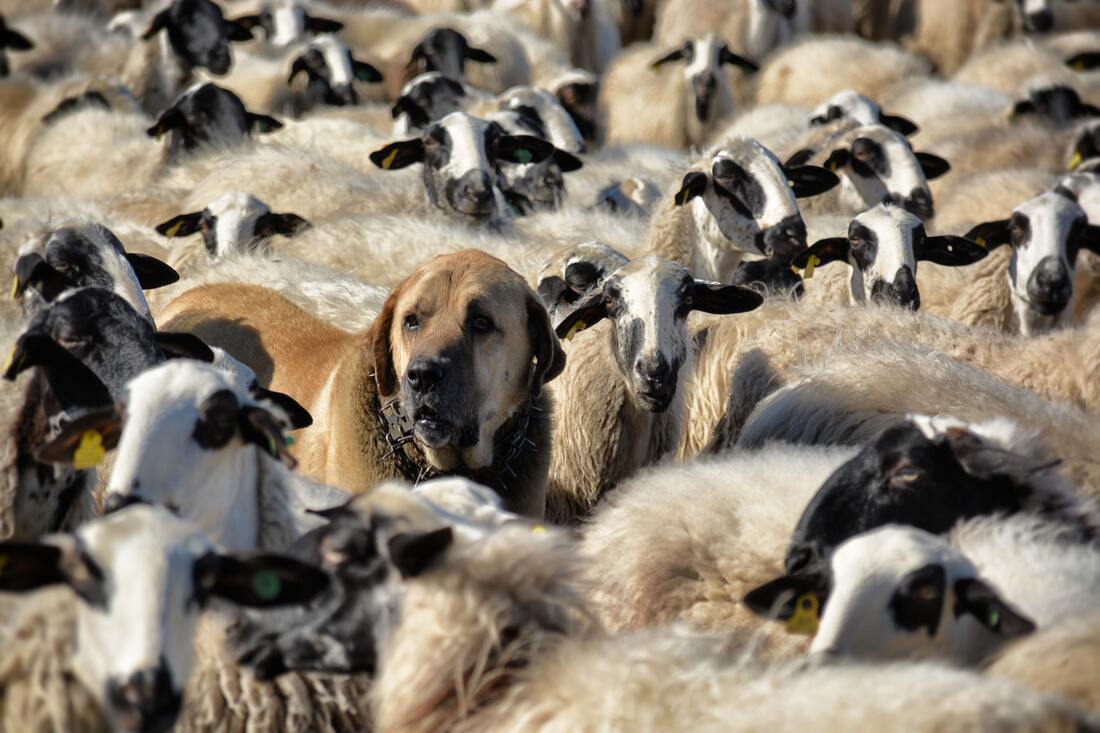

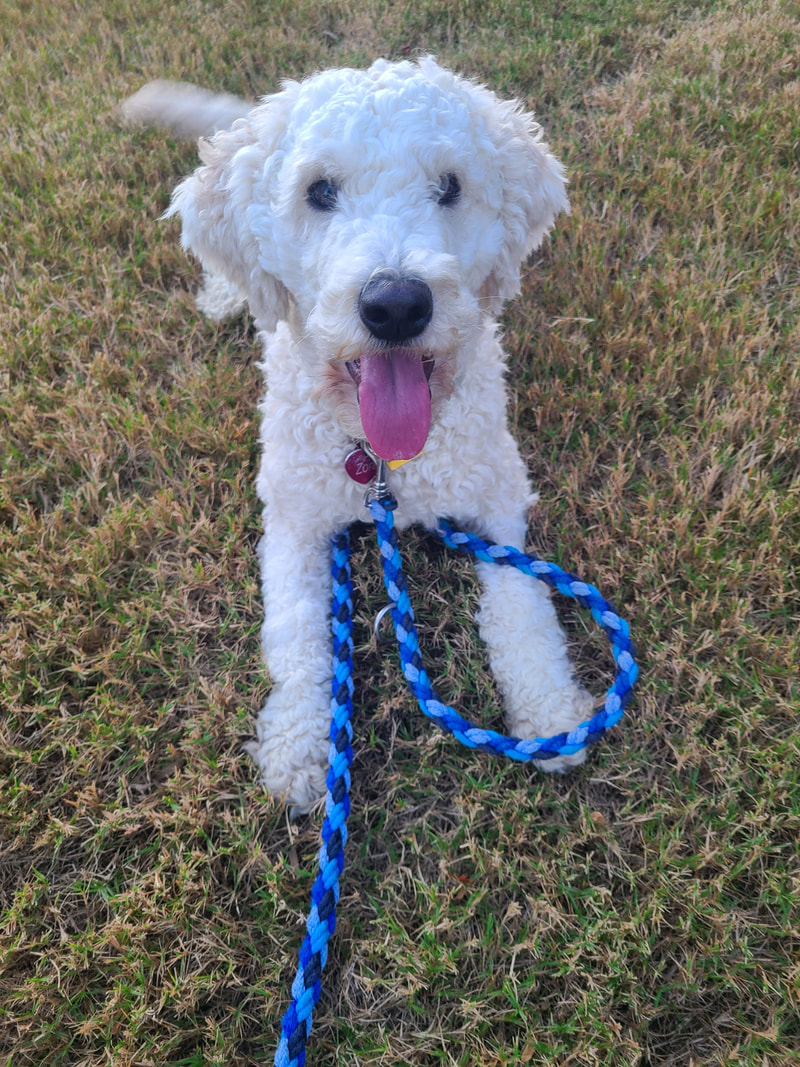
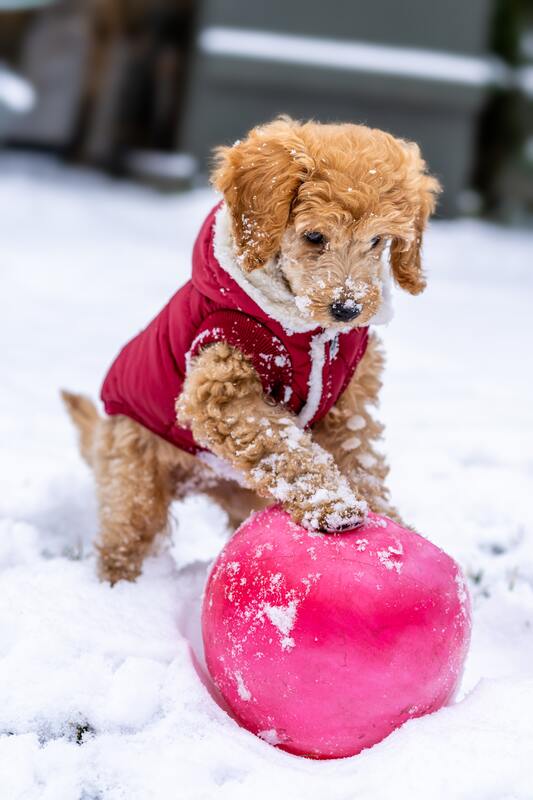

 RSS Feed
RSS Feed